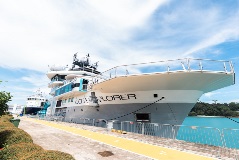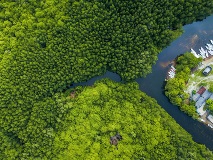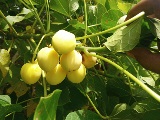Project Partner: UBS Optimus Foundation
Geographies: Indonesia and other cities along the subtropical belt
What is the core idea of the pilot?
Mangrove ecosystems have many benefits – including sequestering carbon 4-5 times faster than terrestrial forests, protecting coastlines against extreme weather, conserving marine biodiversity, and supporting community livelihoods. 40 locations spread across just 25 countries represent 69% of the world’s remaining intact mangrove ecosystems, with the potential to save on average $65b per year in avoided losses and storing some 3 billion tonnes CO2e. Indonesia, in particular, has 40% of the total carbon stock stored in mangroves globally – with an estimated total mangrove coverage of 2.7 million hectares and 24% of the world's restorable potential.
But there is insufficient financing to achieve this at speed and scale. We can catalyse global financing for mangroves and coastal resilience by identifying good projects, strengthening blue carbon pricing, and designing a mechanism for the sustainable flow of capital across the global mangrove belt to enable mangrove restoration and conservation – with Indonesia as a pilot country.
Why is this innovative?
- A ‘blue carbon+’ framework: Enable local projects to increase their income from blue carbon credits, leading to a global blue carbon price benchmark
- Global project pipeline: Aggregate and support a viable pipeline of local mangrove conservation and restoration projects underway across the 40 locations
- Indonesia country pilot: Catalyse a financing PPP partnership to collaborate in deploying innovative sustainable finance
- Creation of the M40/Global Mangrove Fund: Support development of a global fund, incorporating blended finance and developing high-impact blue carbon opportunities
What will success look like?
- Recognition of blue carbon and mangroves, as an investable asset in their own right
- Pricing methodology that reflects the social and environmental value of mangroves, contributing to the positive development of a carbon market
- Market access for local mangrove projects, by linking them to the carbon strategies of global companies and investors
- Innovative financing partnership piloted in Indonesia and that can be replicated across the M40
- Technical assistance to catalyse a pipeline of investible projects
- Support the structure and launch the M40 /Global Mangrove Fund, a global nature-based fund for coastal resilience channeling investments into mangroves
How will success be achieved?
A 3-year programme to deliver the following:
1. Identify and design nature-based resilience projects across a global investment pipeline, based on analysis of local opportunities and engagement across all 40 cities
2. At least USD$50 million in technical assistance grant funding, disbursed by government donors directly to M40 cities to support development of investable projects based on detailed analysis of gaps and opportunities
3. Development of collaborative venture to scale proven financial solutions for mangrove financing, providing market access and technical assistance across the M40
4. Global investment project pipeline defined for M40 cities; classifying at least 500 investment projects and designing and supporting the launch of a fund mechanism by 2025 to mobilise USD$100 million in private and public capital for investment across the M40
Who is leading the project?
UBS Optimus Foundation is partnering Earth Security, a non-profit think tank providing research and analysis to foster the development of sustainable business models and finance partnerships. The project officially kicked off in May 2022, and Earth Security has been driving two pilot projects to develop mangrove financing in two locations of the M40 in Australia and the Philippines.
The M40 concept is based on evidence generated over the past four years from the research carried out by Earth Security as well as other key research by IUCN, UNEP, the Global Mangrove Alliance; and from lessons from the two Mangrove Bond pilots in the Philippines and Australia in the process of developing their frameworks, prototyping and extensive stakeholder engagement with investors, insurance companies, NGOs, city and state authorities. The M40 locations have been identified and validated by stakeholders as those locations that are most critical to the health of the global mangrove ecosystem.

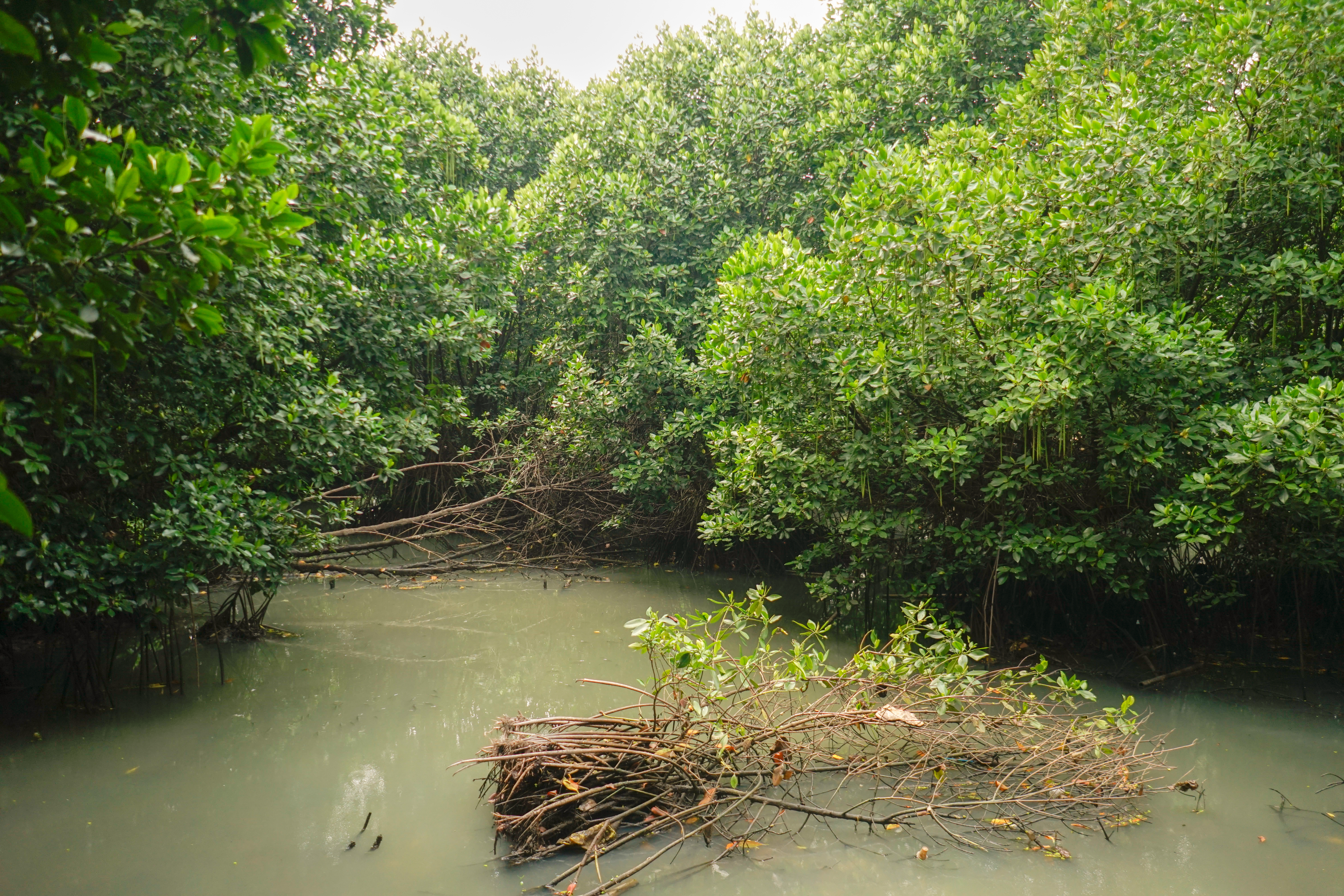



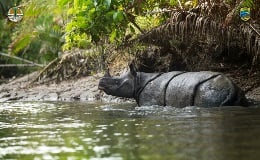

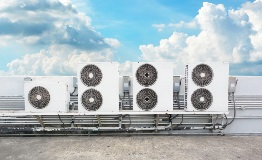
.tmb-.jpg?Culture=en&sfvrsn=9ab1f1f6_1)
